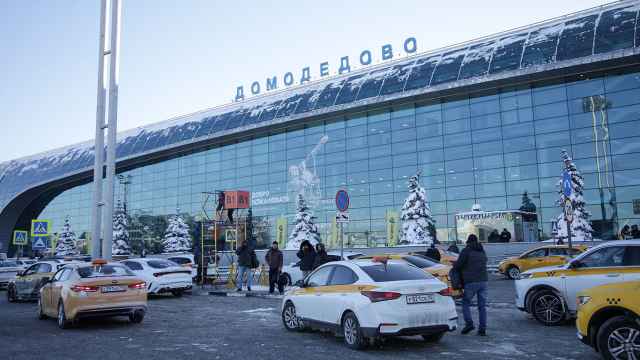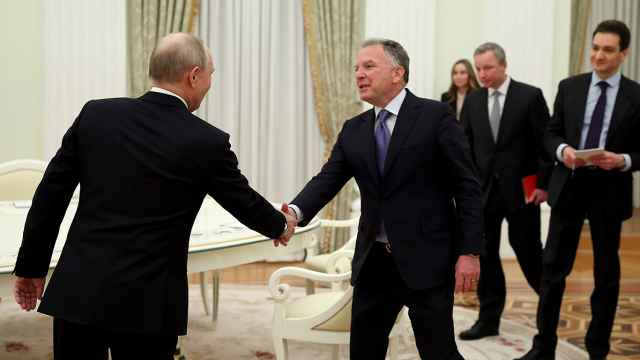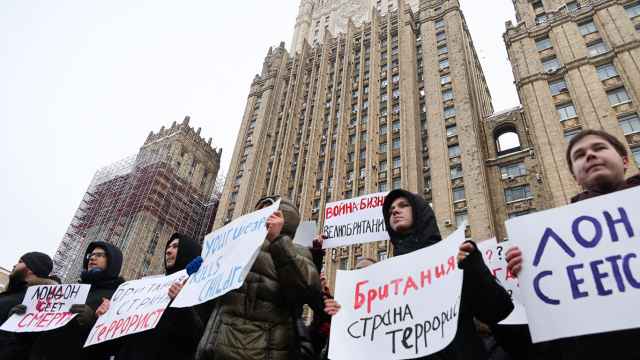Russia's relationship with its neighbors has never been easy or relaxed. The Soviet Union's demise confronted Moscow with the loss of an outer empire — the Warsaw Pact countries — and the loss of an inner empire — the former Soviet republics. Russia was pushed back in the west and in the south to its pre-Petrine borders. The phantom pain inflicted was considerable.
Although it dragged on for decades, the task of mapping out the former internal borders of the Soviet Union as national borders was essentially technical. For example, the surveying of the nearly 7,000-kilometer Russian-Kazakh border, the longest continuous land border in the world, was a gruesome task.
The delimitation of national borders, in contrast, has been a challenging political task that requires will and skill. The ratification of a border treaty with a neighbor only provides the precondition for normalizing relations. It does not necessarily assuage old tensions or resolve simmering grievances.
In recent years, Russia has achieved surprising border settlements with China and Norway. In China's case, President Vladimir Putin's suggestion in 2004 on resolving outstanding border issues was a strategic move that quickly led to the conclusion of a border treaty. After 300 years, the border between Russia and China was finally defined. This was no minor achievement in light of the border skirmishes with China at the end of the 1960s along the Ussuri River and China's ongoing sovereignty disputes with other neighbors in the South China Sea and elsewhere.
In contrast, the seemingly intractable border issue with Norway — the delimitation of the Barents Sea — was 40 years in coming. The final solution suggested by then-President Dmitry Medvedev during his visit to Oslo in April 2010 was a strategic move, although it was as unexpected as it was obvious: Split the disputed territorial claims down the middle rather than continue to wrangle over sector or median lines. The significance of the border agreement cannot be underestimated. It opened up a large swath of the Barents Sea's hydrocarbon resources to exploration and production.
As Russia reached out to China in 2004, it made similar proposals to Estonia and Latvia. In neither instance did the proposed treaty alter the post-war internal borders, yet it took until 2007 for Latvia to ratify the treaty. The treaty with Estonia, although signed, has yet to be ratified, but talks are under way behind the scenes.
Since the Soviet Union and Japan never concluded a peace treaty after World War II, border demarcations have remained unresolved for more than half a century. Russia's borders with Japan are today the only significant Russian border issue still open. The proposed compromise of returning two of four disputed islands as suggested in a joint Soviet-Japanese declaration in 1956 never came to fruition.
Settling border issues might appear at first glance to be mere procedure, but as we can see in Russia's case, they are not. The residual conflicts from the Soviet Union are one of the main causes for continuing tension. The real challenge is putting old grievances to rest and facing up to the issues required for historical reconciliation.
Indeed, the issues that prevented Moscow and Oslo from reaching an agreement on how to delimit the Barents Sea during and after the Cold War pale in comparison to the tensions between Russia and some of its neighbors. In the case of Poland, it was not border disputes but the heavy baggage of history that dominated the relationship. Finland never forgot the Soviet attack in 1939, even if Finland avoided Soviet occupation and signed a peace treaty that fixed the borders.
Today, Russian-Finnish reconciliation appears as a fact of history, just like Russian-German reconciliation. Finnish-Russian reconciliation materialized delicately and gradually, and was never characterized as "reconciliation." However, the fact of reconciliation was tacitly recognized by President Boris Yeltsin in 1992 in Helsinki when he placed a wreath at the war memorial and bowed his head at the tomb of Marshal Carl Gustaf Emil Mannerheim.
Poland is simply too big to be disregarded, not to mention that the country today is a prominent EU member. All EU member states carry their weight in decision-making when it comes to issues like abolishing visas. Thus, Putin's participation on Sept. 1, 2009, at a ceremony in Gdansk marking the beginning of World War II was yet another strategic move. Just as in the case of Finland, the war for Poland did not start in June 1941.
The task of historic reconciliation was tackled by a Russian-Polish joint historical working group under the modest but telling name Commission on Difficult Issues. The group's work was crowned by success, especially in the case of the massacre of captured Polish officers in 1940. Russia admitted Soviet responsibility and Putin and Poland's Donald Tusk laid a wreath at the memorial in Katyn in April 2010.
Patriarch Kirill's visit to Poland this August was historic. It was the first-ever visit of the head of the Russian Orthodox Church to Catholic Poland. Kirill and Archbishop Józef Michalik signed a joint appeal for reconciliation.
A lot of unfinished business remains with regard to Russia's relationship to its many neighbors. The responsibility lies with the larger partner to show the way and take a first step, even if is only a small one, to start the process.
The example of Poland remains relevant to Estonia, Latvia and Lithuania, all forcibly annexed by the Soviet Union, with an ensuing decapitation of the elites and mass deportations. Plenty of unsettled issues remain among Russia's neighbors, but in Russia's relations with the Baltic states, the path to historical reconciliation is already staked out.
A key component would be official statements of the State Duma on the issue of forcible annexation, followed by formal renunciations of reparation and compensation claims against Russia by the Baltic states. An official visit of the Russian president to Estonia, Latvia and Lithuania would symbolically normalize relations.
Rene Nyberg, a former Finnish ambassador to Moscow and Berlin, is chief executive of East Office of Finnish Industries, a group founded by leading Finnish corporations to enhance business opportunities in Russia.
Related articles:
A Message from The Moscow Times:
Dear readers,
We are facing unprecedented challenges. Russia's Prosecutor General's Office has designated The Moscow Times as an "undesirable" organization, criminalizing our work and putting our staff at risk of prosecution. This follows our earlier unjust labeling as a "foreign agent."
These actions are direct attempts to silence independent journalism in Russia. The authorities claim our work "discredits the decisions of the Russian leadership." We see things differently: we strive to provide accurate, unbiased reporting on Russia.
We, the journalists of The Moscow Times, refuse to be silenced. But to continue our work, we need your help.
Your support, no matter how small, makes a world of difference. If you can, please support us monthly starting from just $2. It's quick to set up, and every contribution makes a significant impact.
By supporting The Moscow Times, you're defending open, independent journalism in the face of repression. Thank you for standing with us.
Remind me later.





